23+ Sample Notarized Letters
-
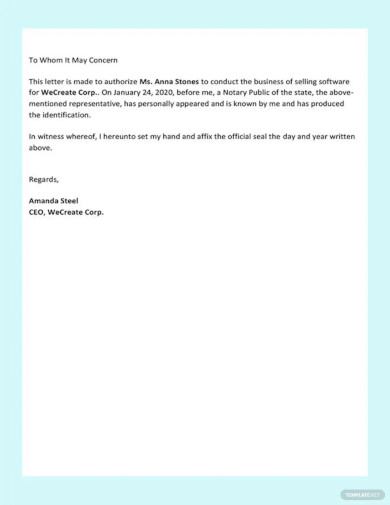
Sample Notarized Letter of Authorization Template
download now -
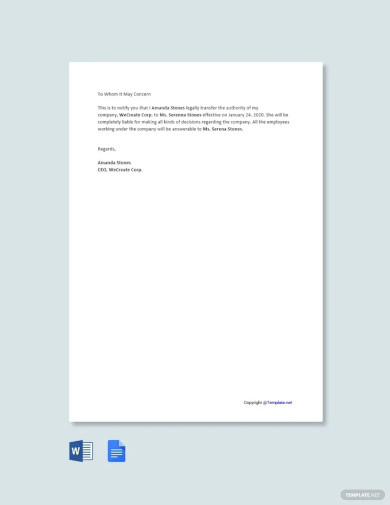
Notarized Letter Sample Template
download now -

Notarized Letter Template for Child Travel
download now -
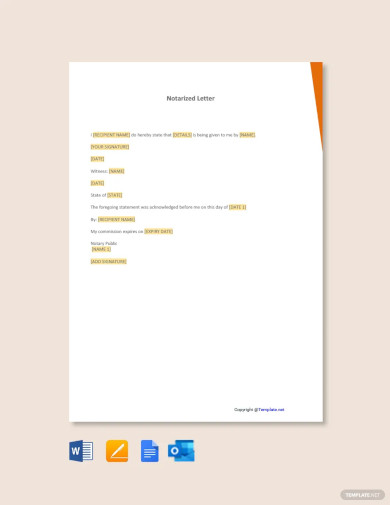
Personal Notarized Letter Template
download now -
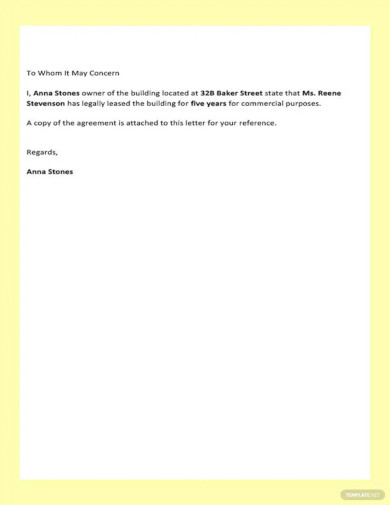
Free Notarized Letter Template for Residency
download now -
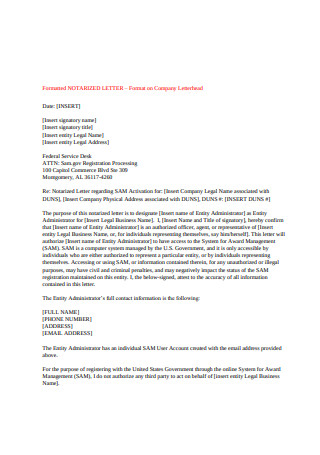
Personal Notarized Letter
download now -
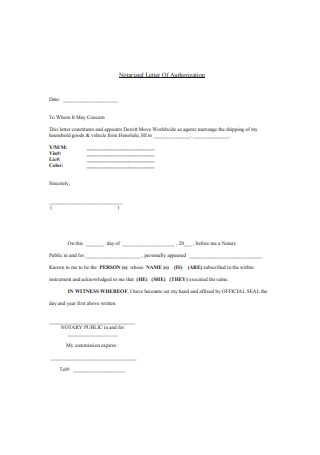
Notarized Letter Of Authorization
download now -
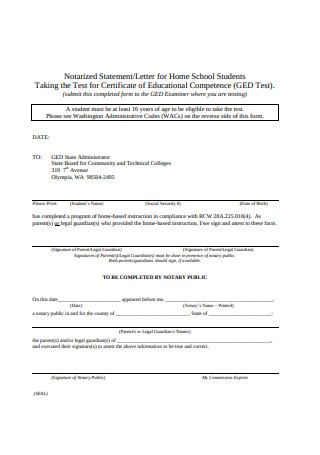
Guardianship Notarized Letter
download now -
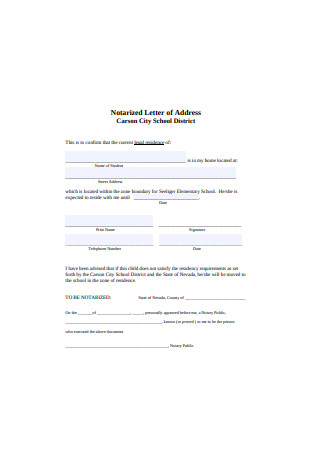
Notarized Consent Letter of Address
download now -
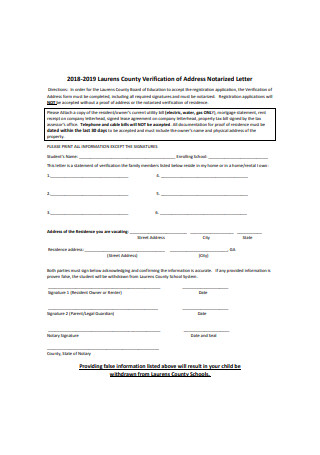
Sample Vehicle Notarized Letter
download now -
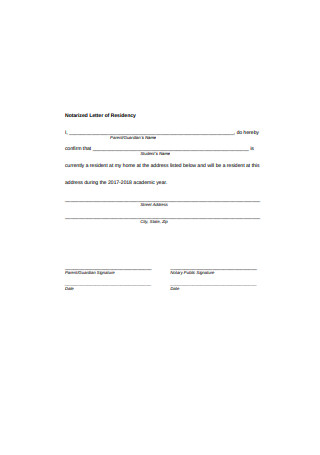
Notarized Employment Letter of Residency
download now -
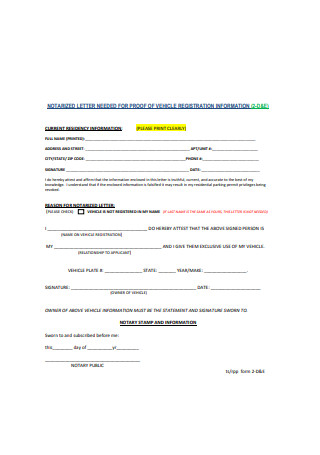
Basic Financial Support Notarized Letter
download now -

Notarized Affidavit Authorization Letter
download now -
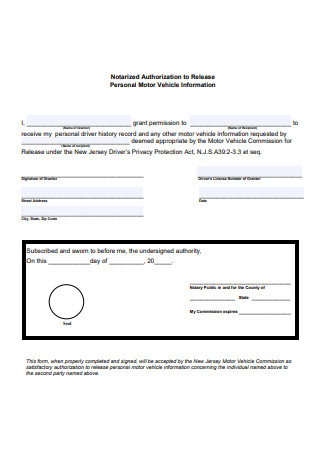
Notarized Payment Letter
download now -
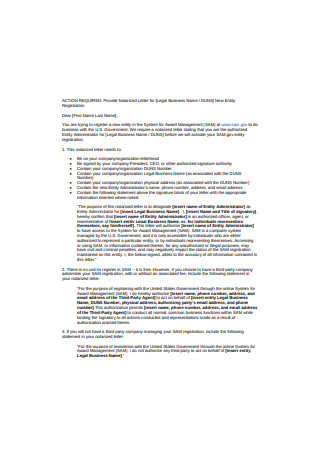
Notarized Parent Letter
download now -
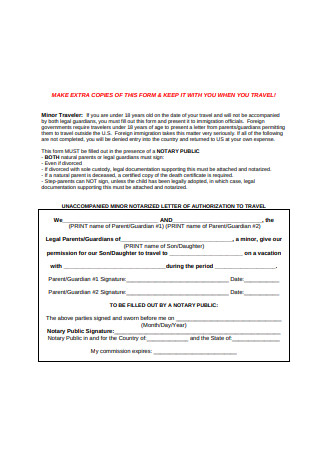
Notarized signature Letter
download now -
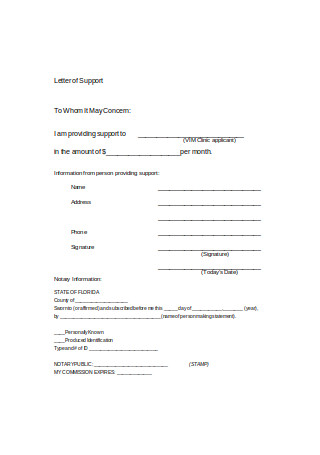
Bank Notarized Letter
download now -
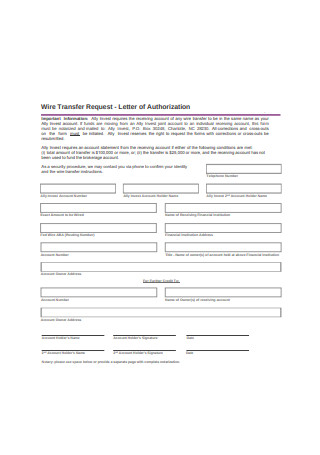
Verification Notarized Letter
download now -
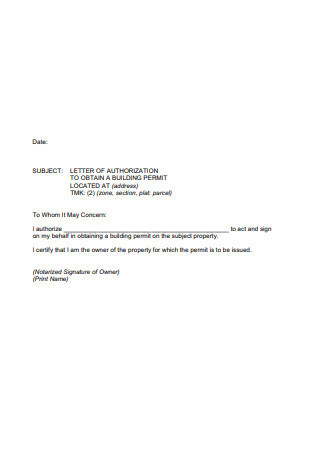
Sample Property Notarized Letter
download now -
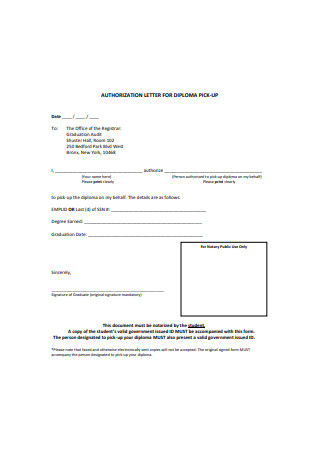
Child Notarized Letter
download now -
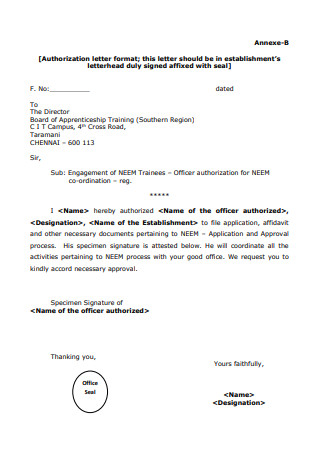
Custody Notarized Letter
download now -
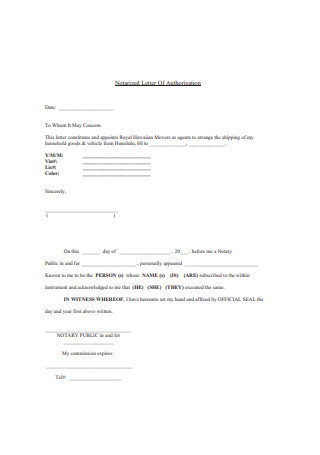
School Notarized Letter
download now -
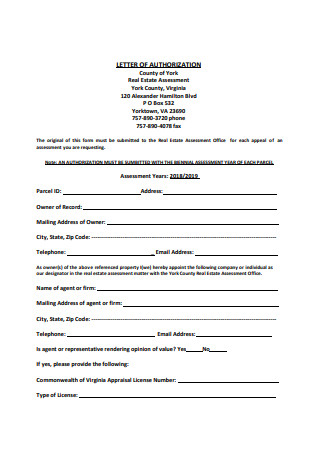
Tenant Notarized Letter
download now
What Is a Notarized Letter?
A notarized letter is a document that certifies the validity of another legal document. A notary public is an appointed officer who can confirm or acknowledge the authenticity of any legal document. Whether it’s for a sales contract, permission to travel, child support, or any other personal reason that needs to be in writing, you can use a notarized letter to certify that your document is authentic, legal, and enforceable. You can use a notarized letter for various reasons. In almost all aspects of legal documentation, notarization is essential. For example, upon the sale of a property, if not notarized, the buyer can contest that the price stated in the deed is not what both of you have agreed upon initially. In this case, the amount on the document has been voided, thus putting the seller at a disadvantage. However, the whole notarization process does not only comprise having a notary public check a text, witness the signing of the document, and notarize it. There are a few steps a notary public needs to check first before proceeding with notarization.
A Notary Public’s Checklist
Since these are legal documents that we are dealing with, you need to make sure that everything written in it is accurate, not confusing, and are within the boundaries of the law. After that, a notary public will need to screen you for a few things first before notarizing them.
Before, the court requires almost all legal documents to be notarized. These days, however, most state laws consider some agreements, such as employment agreements, enforceable without notarization. Nevertheless, notarization is still essential in the sense that the court will not question a document’s authenticity with the presence of a notarized letter.
What are the Different Types of Notarial Acts?
Notarial acts are certifications or capabilities that a notary public can do based on what the state has authorized him to do. There are three different notarial acts that a notary is approved to certify.
Some states like Florida, Maine, and South Carolina, allow notaries to certify marriages. There are documents, though, that you can’t notarize, such as birth certificates and wills. These days, notarization is no longer necessary. Some state laws already legalize a document without having a notarized letter. But why do people still prefer to notarize documents?
It is easy for some to retract their statements and contest what’s inside the document, especially if they’re on the shorter end of the stick. However, you can use a notarization to your advantage. As stated in Cornell Law School, take a look at Rule 902(8) on “Evidence That is Self-Authenticating:”
“The following items of evidence are self-authenticating; they require no extrinsic evidence of authenticity to be admitted: (8) Acknowledged Documents. A document accompanied by a certificate of acknowledgment that is lawfully executed by a notary public or another officer who is notarized to take acknowledgments.”
In simpler terms, an acknowledgment document certified by a notary is already considered authentic evidence. There is no need to question its authenticity or credibility. No matter how obsolete a notarized letter or document may be, it will still work to your advantage in court litigation.
When Can I Use a Notarized Letter?
You can use a notarized letter for any purpose. Whether it’s for travel or authorization, we use notarized letters to discourage fraud and encourage proper execution of clauses or contracts. Take a look at the different types of notarization letters used for different kinds of purposes:
Travel/Parental Consent
These days, parents value their child’s freedom in such a way that they are permitted to travel alone. If a child under the age of 18 needs to go on an international excursion alone, a notarized letter permitting the child to travel is required. Along with a permission slip, enclose a notarized letter for legal purposes. For the letter, you would need to include the child’s information (child’s name, home address, documentation), travel details such as dates and locations, the accompanying adult’s information, and the parents’ signature.
Proof of Residency
Before signing into a loan agreement, financial institutions will always require proof of residency. But since owning a home can be difficult as it is expensive, we sometimes opt for apartment leasing, in which case, the lot is not under your name. You’d need a “Proof of Residency” that comes with a notarization letter to get that home loan or car loan that you’ve always wanted.
Work Attestation/Proof of Income
When you get a loan, financial institutions would require you to submit proof that you can keep up with your monthly or weekly payments. An essential part of the verification process is to provide an employment letter or proof of income. After getting a work attestation from your workplace, most of the time, the lender would require that this document be notarized.
How to Prepare For a Notarized Letter
Notarization letters are potent pieces of evidence that need no further questioning. What looks like a simple piece of a document can help you greatly when you need it. You need to draft a notarization letter correctly for it to be treated well in court. So, how do you prepare for and write a notarized letter?
Step 1. Write Your Letter
It is easy to draft a notary letter. You only need to use simple language and not much legal jargon to write one. It should include the following details: the type of notarized letter that you are writing, its purpose or use, blank spaces for the dates and the names of the people involved, spaces for the individuals’ signatures, a space for the name of the notary, and a space for the notary’s signature. For travel purposes, you may also need to indicate the travel sample itinerary or details of the minor. You can also download our notarized letter templates to make it easier for you.
Step 2. Find a Notary Public
You can never notarize your document. You’d need an appointed officer/notary public to do so. It would be best to have a notary who knows you sign the letter. That way, the notarization process would be shorter and more convenient. These days, mobile notarization is already available, some even 24/7, bypassing multiple steps in the process. However, some states may not allow remote notarization. Make sure to check with your state laws concerning mobile notarization.
Step 3. Prepare Your Identifying Documents
The first thing a notary does in the notarization process is to check the identity of both parties. Your notary public would need to verify your identity first using a valid ID. A valid ID can be a passport, a driver’s license, or social security. Verify, first, with your state what IDs are considered valid before going to a notary. However, there may be times when identifying documents are unavailable. In this case, the notary can verify your identity through a credible witness. A credible witness is someone who knows both the individual and the notary and is not a family member. If the witness does not personally know the notary, some states allow you to bring in a second witness.
Step 4. Document Examination
Since you can use these documents during litigation, the notary would need to double-check the business contract or deed first before stamping the paper. For copy certification, they need to verify that the two articles are indeed a duplicate of each other. Your documents have to undergo scrutiny before moving on to the next step.
Step 5. Undergo an Interview Process
Coercion or duress is a crime. The notary would want to make sure that neither of the concerned individuals was forced in any way to agree with the terms presented. It’s possible as well that one of the two individuals is under the influence of toxic substances or alcohol, thus altering his ability to make a sound judgment. Therefore, they need to check if both of you have agreed with the terms willingly and are of sound mind. They also need to make sure that you are fully aware of the clauses stated in the contents to avoid complications in the future. Since it’s a self-authenticating document, once signed, it would be difficult to contest what’s in the contract.
Step 6. Sign the Documents
After the notary has finished screening you, you are now ready to sign the documents. The document must be signed in the presence of the notary public. Be sure not to leave any blank spaces in the material as that can be prone to fraud. You will also receive a notary stamp from your notary public, making it legally binding.
With the many revisions in state laws, notarization has become obsolete. But these letters still hold so much power in federal law. Whether you want to notarize your document or not is all up to you. However, unfortunate events may happen, and people with vested interests may use a contract or deed to work against you. If you’d like to protect yourself from uncertainties, it would be in your best interest to get a notarized letter. It proves that both of the parties entered into the contract, whether it’s a marriage contract or prenuptial agreement, willingly and with full awareness of its clauses and provisions. As the saying goes, “Prepare and prevent. Don’t repair and repent.”
